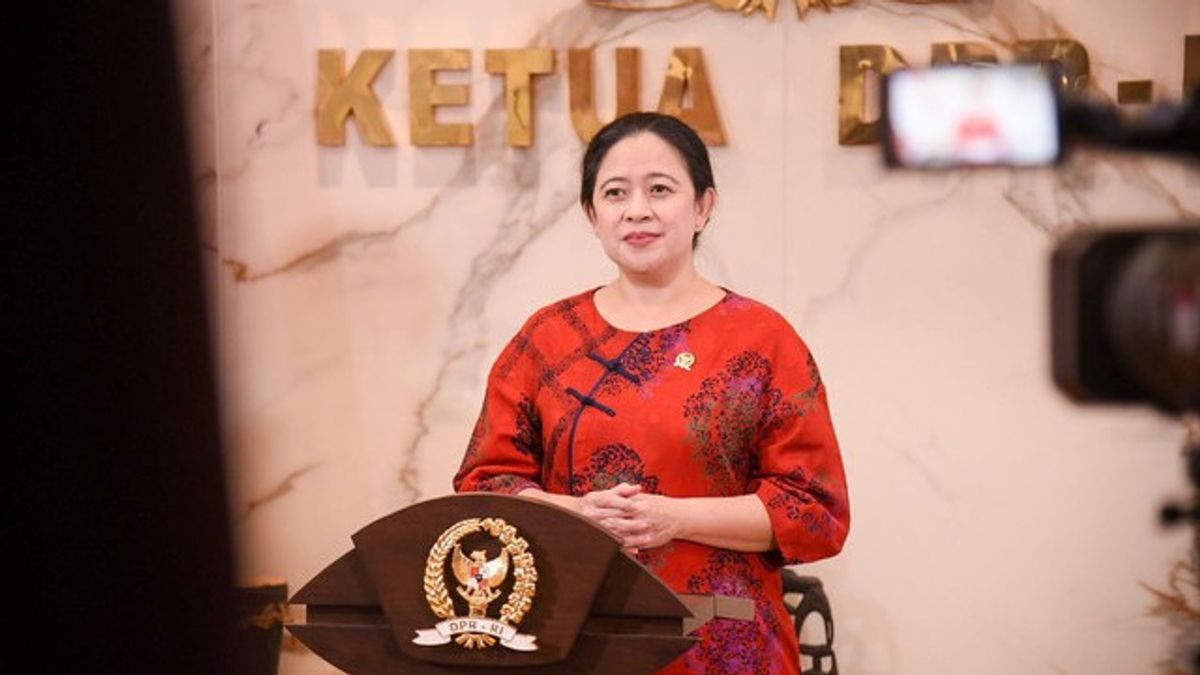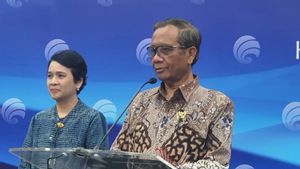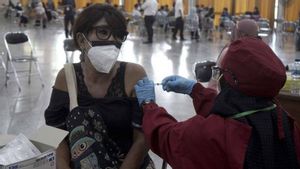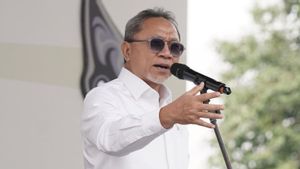JAKARTA - The Speaker of the House of Representatives, Puan Maharani, highlighted the need for awareness of global climate change and threats due to the El Nino phenomenon. He emphasized the importance of careful precautions to reduce the impact of drought.
The National Research and Innovation Agency (BRIN) estimates that Indonesia will face the threat of El Nino's influence in June 2023, with the impact of drought extending until July 2023. Java is predicted to be the area most affected by drought.
"Drought caused by the El Nino phenomenon is a serious threat to society. Therefore, the Government must play an active role in formulating an anticipatory strategy to reduce the bad effects," said Puan in her statement, Friday, May 26.
The former Coordinating Minister for Human Development and Culture revealed that the El Nino phenomenon that Indonesia is facing has an impact on the agricultural and plantation sectors. Dry land and lack of water supply, said Puan, will hamper crop growth, result in crop failure and reduce agricultural productivity.
"This has an impact on food supply, rising food prices, and reducing farmers' income. If not anticipated, the impact of drought will spread to the household sector, such as the price of basic commodities to increase," he said.
In addition, the problem of clean water is also often a problem when the dry season arrives. Therefore, the DPR asks the Government to prepare supporting facilities and infrastructure for clean water supply for the community.
"The government must also record clean water sources in every city/district area. Don't let residents have trouble getting them for their daily needs," said Puan.
اقرأ أيضا:
Disorders in clean water sources also increase the potential for skin diseases and other diseases. For this reason, Puan asked for a quick response from the Government in tackling these health problems.
"Medical workers must also be prepared by the Government to anticipate the emergence of disease outbreaks when the dry season arrives. In addition, equipment in health facilities must also be considered, especially health facilities in rural areas," explained the first woman who served as Chairman of the DPR.
Puan also encouraged the Government to intensify education to the public in order to prepare the dry season as an effort to anticipate drought. Education, such as regarding water conservation, wise water resource management and the development of alternative water sources, is considered something that the government needs to echo.
"It is necessary to educate the public, especially farmers, about how to deal with the prolonged dry season. With the aim of building better resilience and minimizing crop failure," said Puan.
With good precautions and education, Bung Karno's grandson hopes that this year's dry season will not have a significant impact on the economic sustainability and welfare of the people. Puan ensured that the DPR would continue to provide support through its functions and authorities.
"In dealing with the El Nino phenomenon, solidarity and cooperation of all stakeholders are the keys to building stronger and more sustainable state resilience," he stressed.
Furthermore, Puan also highlighted the phenomenon of Disease X which is feared to become a new pandemic. For this reason, the Government is asked to take mitigation steps with the threat of health.
Moreover, based on studies, the anomaly of climate change and global warming is indeed possible to cause a new pandemic. This is because climate change triggers the movement of wild animal habitats to areas with large human populations at risk of spreading the virus.
The World Health Organization or WHO has warned the world community about the possible emergence of Disease X which could potentially lead to the next pandemic.
Disease X is not a certain disease name but a term used by WHO for unknown diseases in the future. The use of this term is also a form of WHO preparedness to deal with diseases that are currently unknown.
"This disease is still mysterious and hidden, I encourage the Government to make mitigation efforts while intensifying socialization and education about the dangers of the disease. Don't let us miss it again because of a lack of information," said Puan.
Disease X is most likely zoonosis caused by pathogens jumping from animals to humans. About 75 percent of previous pandemic diseases were also zoonosis, namely Ebola, HIV-AIDS, rabies, and COVID-19.
Puan again reminded that the end of the COVID-19 pandemic as a global health emergency does not mean the end of all health threats. Therefore, he appealed to the public to continue to comply with health protocols that are at the forefront of fighting every disease.
Staying disciplined with health protocols is better, we must not be careless in the face of new health threats. We don't need to panic, but we must always be prepared for the worst scenario," he concluded.
The English, Chinese, Japanese, Arabic, and French versions are automatically generated by the AI. So there may still be inaccuracies in translating, please always see Indonesian as our main language. (system supported by DigitalSiber.id)













